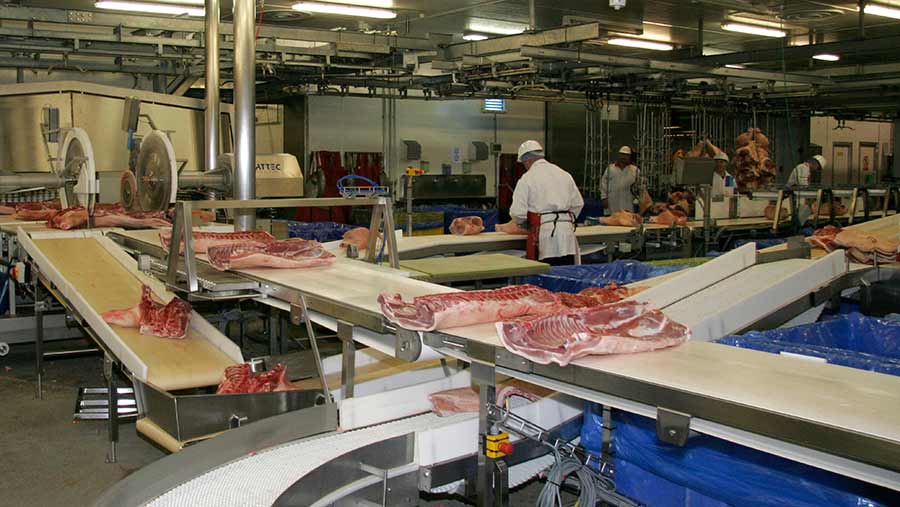Hopes rest on fast rule changes for desperate abattoirs
 © Tim Scrivener
© Tim Scrivener A beleaguered abattoir sector, seeking regulatory reform to ease costs and burdensome paperwork, is optimistic following government crisis talks last week.
Independent abattoir owners facing a maelstrom of bureaucracy, exorbitant electricity bills and labour shortages called on Defra minister Mark Spencer to tailor regulations for smaller abattoirs.
One frustrated abattoir owner and farmer told Farmers Weekly that guidance from different vets was becoming contradictory.
Suggestions had included placing cameras in fields to monitor livestock, deliberating over rodents entering through cracks in door frames as wide as a 10p coin, and counting flies in fly killers.
“They seem more bothered with animal welfare than food standards,” the source said. “Dead flies are not a problem, and cameras won’t work in fields at night or in fog.”
Dr Jason Aldiss of the Association of Independent Meat Suppliers (Aims) said solutions included:
- A regulatory system that differentiated between abattoirs that supplied domestic and export markets, saving on unnecessary export requirements (typically EU laws). This was being dubbed a “tailored inspection regime”
- A faster, more streamlined licensing system from the Gangmasters and Labour Abuse Authority (GLAA). One application lodged nine months ago still had not been approved.
Dr Aldiss said: “We haven’t actually achieved a Brexit dividend, but if the government is serious about delivering such benefits, it must address a burden of ineffective and often unnecessary paperwork.”
NFU livestock adviser John Royle said lower-throughput premises should be classed as lower risk and therefore require reduced veterinary supervision.
Robert Locker, head of field operations at the Food Standards Agency, said the following steps had been taken to help small abattoirs:
- Smaller abattoirs now pay £7.70/hr for a vet rather than £50
- Paperwork would be reduced through “by-exception” reporting requirements
- Inspecting a representative sample of birds from the same flock, rather than every bird, saving time and cost.
